

High Existence. Alternative Sleep Cycles. Most people only think that there is one way to sleep: Go to sleep at night for 6-8 hours, wake up in the morning, stay awake for 16-18 hours and then repeat.
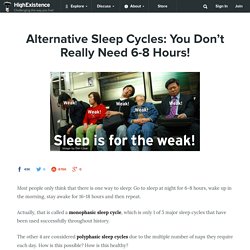
Actually, that is called a monophasic sleep cycle, which is only 1 of 5 major sleep cycles that have been used successfully throughout history. The other 4 are considered polyphasic sleep cycles due to the multiple number of naps they require each day. How is this possible? How is this healthy? Well the most important of every sleep cycle is the Stage 4 REM (Rapid Eye Movement) sleep, which has been shown to provide the benefits of sleep to the brain above all other stages of sleep.
Life Extension. Mindfulness. Pharmacies. Neuropsychopharmacology. Neuropsychopharmacology is an international scientific journal and the official publication of the American College of Neuropsychopharmacology.
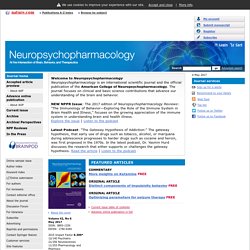
The journal focuses on clinical and basic science contributions that advance our understanding of the brain and behavior. NEW NPPR Issue: The 2017 edition of Neuropsychopharmacology Reviews: "The Immunology of Behavior—Exploring the Role of the Immune System in Brain Health and Illness," focuses on the growing appreciation of the immune system in understanding brain and health illness. Explore the issue | Listen to the podcast Latest Podcast: "The Gateway Hypothesis of Addiction:" The gateway hypothesis, that early use of drugs such as tobacco, alcohol, or marijuana during adolescence progresses to harder drugs such as cocaine and heroin, was first proposed in the 1970s. Live Strong. Overview A lot can happen between visits to the doctor—especially since more than half of men skip out on their annual physical examinations, according to the American Academy of Family Physicians.
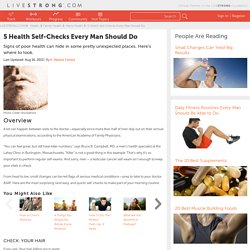
“You can feel great, but still have killer numbers,” says Bruce B. Campbell, MD, a men's health specialist at the Lahey Clinic in Burlington, Massachusetts. Exercise. Public release date: 18-Nov-2008 [ Print | E-mail Share ] [ Close Window ] Contact: Christine Guilfoycguilfoy@the-aps.org 301-634-7253American Physiological Society BETHESDA, Md.
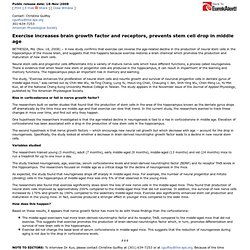
(Nov. 18, 2008) − A new study confirms that exercise can reverse the age-related decline in the production of neural stem cells in the hippocampus of the mouse brain, and suggests that this happens because exercise restores a brain chemical which promotes the production and maturation of new stem cells. Neural stem cells and progenitor cells differentiate into a variety of mature nerve cells which have different functions, a process called neurogenesis. The study, "Exercise enhances the proliferation of neural stem cells and neurite growth and survival of neuronal progenitor cells in dentate gyrus of middle-aged mice," was carried out by Chih-Wei Wu, Ya-Ting Chang, Lung Yu, Hsiun-ing Chen, Chauying J.
Rise in corticosterone or fall in nerve growth factor? Variables studied. Mind enhancing drugs. Ritalin is a stimulant drug, best known as a treatment for hyperactive children. But it has also found a ready black market among students, especially in the US, who are desperate to succeed and are turning to it in preference to the traditional stimulants of coffee and cigarettes. Brain Training. YouTube. YouTube. Psychology Today. Anti-realism. Anti-realism in philosophy[edit]
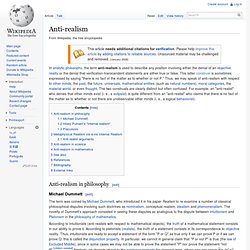
Mind Hacks. Meditation and "Drugs" It's a not-so-dirty little secret that most of today's leading meditation teachers were interested in drugs.
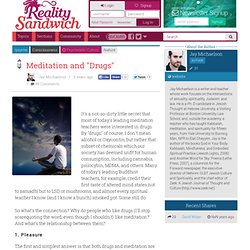
By "drugs," of course, I don't mean alcohol or Oxycontin, but rather that subset of chemicals which our society has deemed unfit for human consumption, including cannabis, psilocybin, MDMA, and others. Many of today's leading Buddhist teachers, for example, credit their first taste of altered mind states not to samadhi but to LSD or mushrooms, and almost every spiritual teacher I know (and I know a bunch) smoked pot. Some still do. So what's the connection? NeuroScience. Mental Health. Longecity. Brain Meta. Reverse Engineering The Brain. GroomU. Neuroskeptic. Yet another "promising" novel antidepressant has failed to actually treat depression.
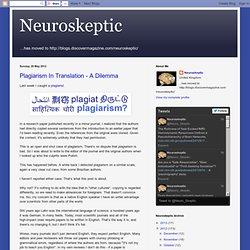
That's not an uncommon occurrence these days, but this time, the paper reporting the findings is almost as rubbish as the drug: Translational evaluation of JNJ-18038683, a 5-HT7 receptor antagonist, on REM sleep and in major depressive disorder So, Pharma giant Janssen invented JNJ-18038683. It's a selective antagonist at serotonin 5HT-7 receptors, making it pharmacologically rather unusual. They hoped it would work as an antidepressant.
It didn't - in a multicentre randomized controlled trial of 230 depressed people, it had absolutely no benefits over placebo. About the only thing JNJ-18038683 did do in humans was to reduce the amount of dreaming REM sleep per night. Boost Your Brain Power. Here are 120 things you can do starting today to help you think faster, improve memory, comprehend information better and unleash your brain’s full potential.
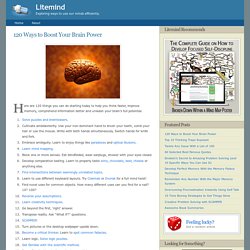
Solve puzzles and brainteasers.Cultivate ambidexterity. Use your non-dominant hand to brush your teeth, comb your hair or use the mouse. Write with both hands simultaneously. Switch hands for knife and fork.Embrace ambiguity. Learn to enjoy things like paradoxes and optical illusions.Learn mind mapping.Block one or more senses.